6 - HEMATOLOGY
1/89
There's no tags or description
Looks like no tags are added yet.
Name | Mastery | Learn | Test | Matching | Spaced | Call with Kai |
|---|
No study sessions yet.
90 Terms
Sysmex XN 3000
Beckmann Coulter DXH 900
SP10
DI (Digital Imaging) 60
Analyzers
CBC Analyzers (4)
Electrical Impedance with Hydrodynamic Focusing
Analyzers
CBC Analyzers
Sysmex XN 3000
Principle for RBC and Platelets
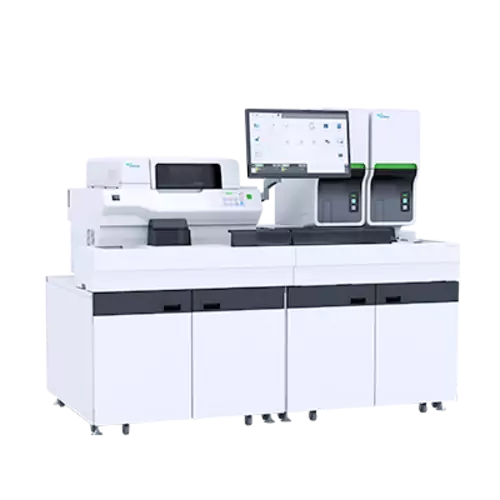
Fluorescence Flow Cytometry
Analyzers
CBC Analyzers
Sysmex XN 3000
Principle for Differential Count (WBC)
Complete blood count
Reticulocyte count
Hemoglobin and hematocrit body fluids
Immature platelet fraction
Analyzers
CBC Analyzers
Sysmex XN 3000
Tests done (4)
Electrical Impedance
Analyzers
CBC Analyzers
Beckmann Coulter DXH 900
Main Principle

Complete blood count
Analyzers
CBC Analyzers
Beckmann Coulter DXH 900
Tests done
Mechanical
Analyzers
CBC Analyzers
SP10
Principle
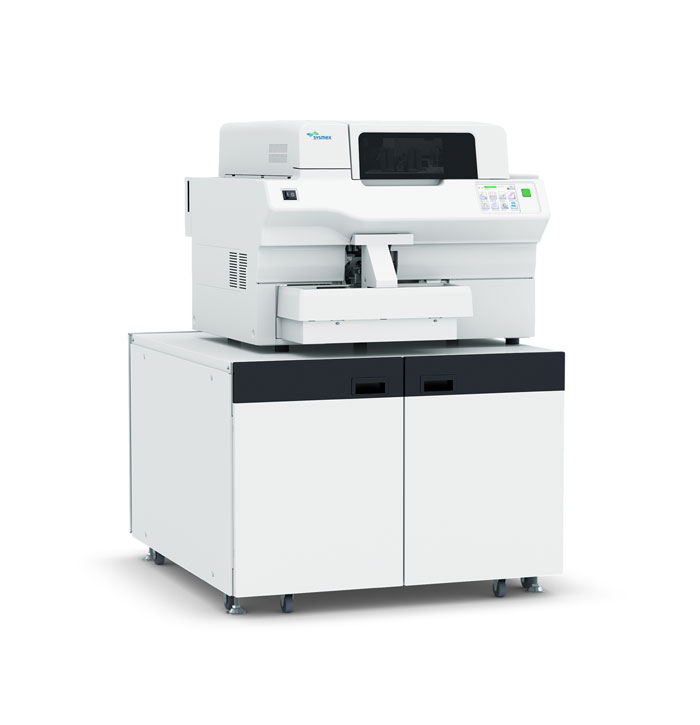
Automated slide processor with stain preparation (15 mins)
Analyzers
CBC Analyzers
SP10
Tests done
Artificial Neural Network
Analyzers
CBC Analyzers
DI (Digital Imaging) 60
Has “ANN”
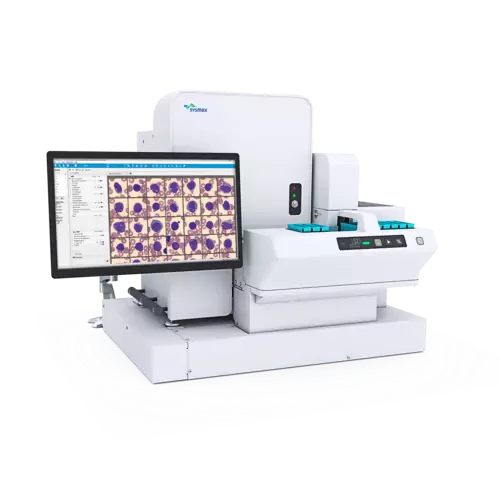
Digital Morphology (with built in microscope—OLYMPUS)
Analyzers
CBC Analyzers
DI (Digital Imaging) 60
Principle
Automated slide reader
Analyzers
CBC Analyzers
DI (Digital Imaging) 60
Tests done
Sysmex CS 2500-A
Sysmex CS 2500-5
Sysmex CA 101
Stago Compact MAX
Analyzers
Coagulation Analyzers (4)
Sysmex CS 2500-A
Analyzers
Coagulation Analyzers
Main machine for PT and PTT
Photo-optical
Analyzers
Coagulation Analyzers
Sysmex CS 2500-A
Principle
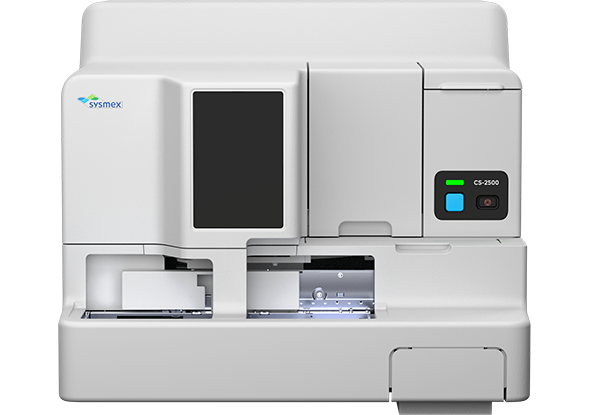
transmitted light detection
Analyzers
Coagulation Analyzers
Sysmex CS 2500-A
Photo-optical uses _ _ _
Routine testing for PT, PTT
Analyzers
Coagulation Analyzers
Sysmex CS 2500-A
Tests done (2)
Sysmex CS 2500-5
Analyzers
Coagulation Analyzers
Back-up machine for PT, PTT, and for special coagulation tests
transmitted light detection
Analyzers
Coagulation Analyzers
Sysmex CS 2500-5
Photo-optical uses _ _ _ method
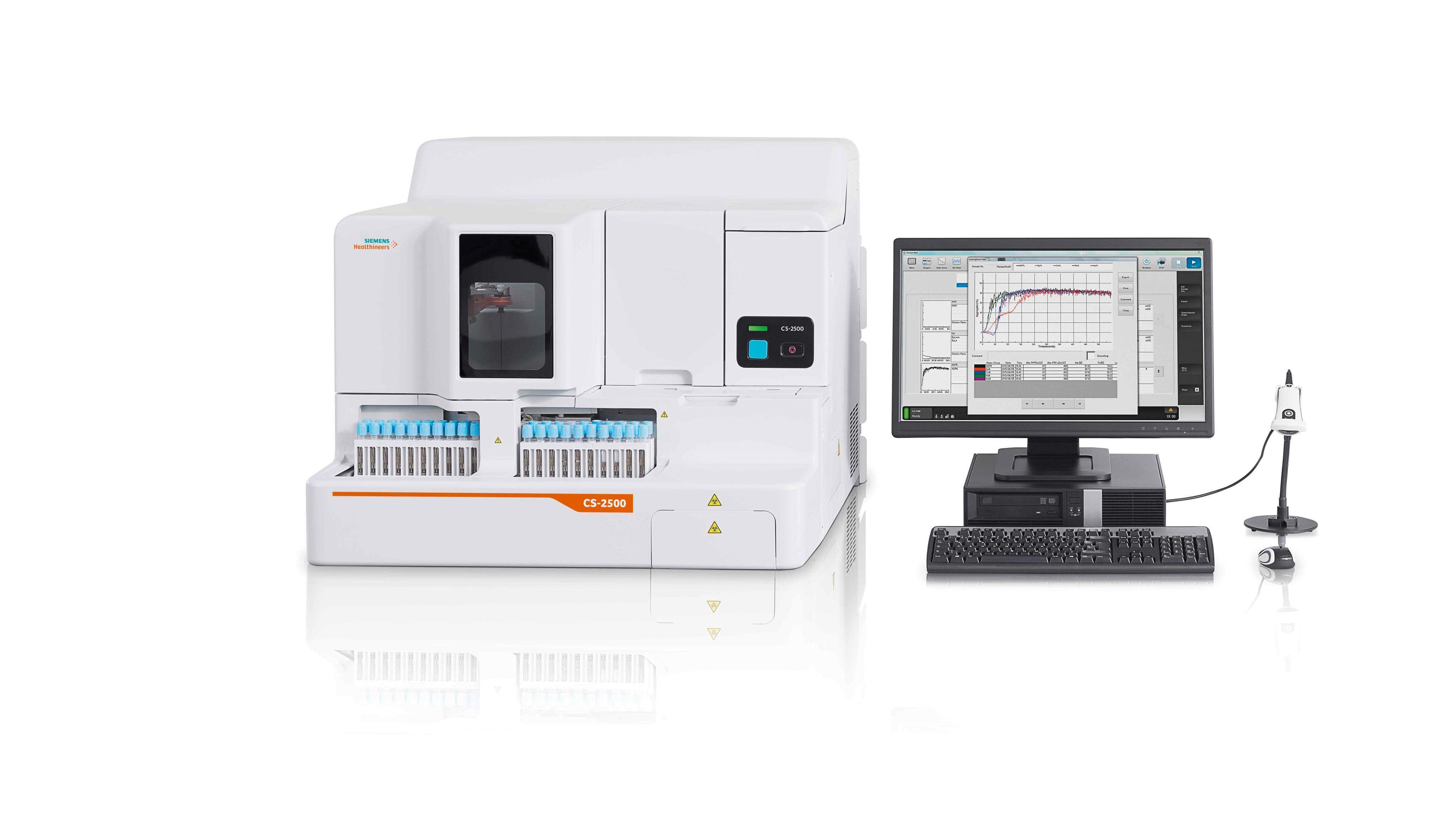
PT
PTT
Thrombin time
Factor V Leiden
Protein C
Factor Assays II, V, VII, VIII, IX, X, XI, XII
Heparin (LMWH and UFH)
Comprehensive platelet function assay
Analyzers
Coagulation Analyzers
Sysmex CS 2500-5
Tests done (8)
Thromborel S
Analyzers
Coagulation Analyzers
Sysmex CS 2500-5
Reagents for PT
Pathromtin SL, CaCl2
Analyzers
Coagulation Analyzers
Sysmex CS 2500-5
Reagents for PTT
Opto-mechanical via turbodensitometric method
Analyzers
Coagulation Analyzers
Sysmex CA 101
Principle
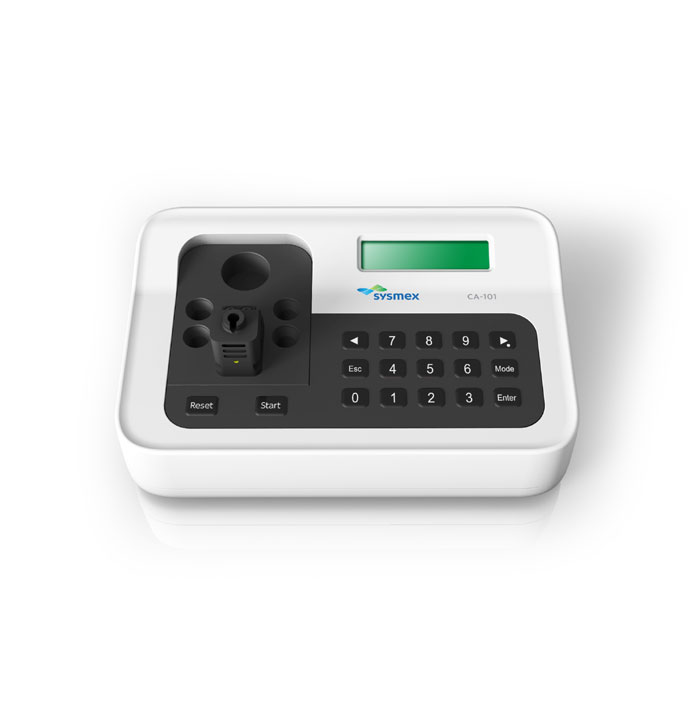
Mechanical (Viscosity-based Detection Method)
Analyzers
Coagulation Analyzers
Stago Compact MAX
Principle
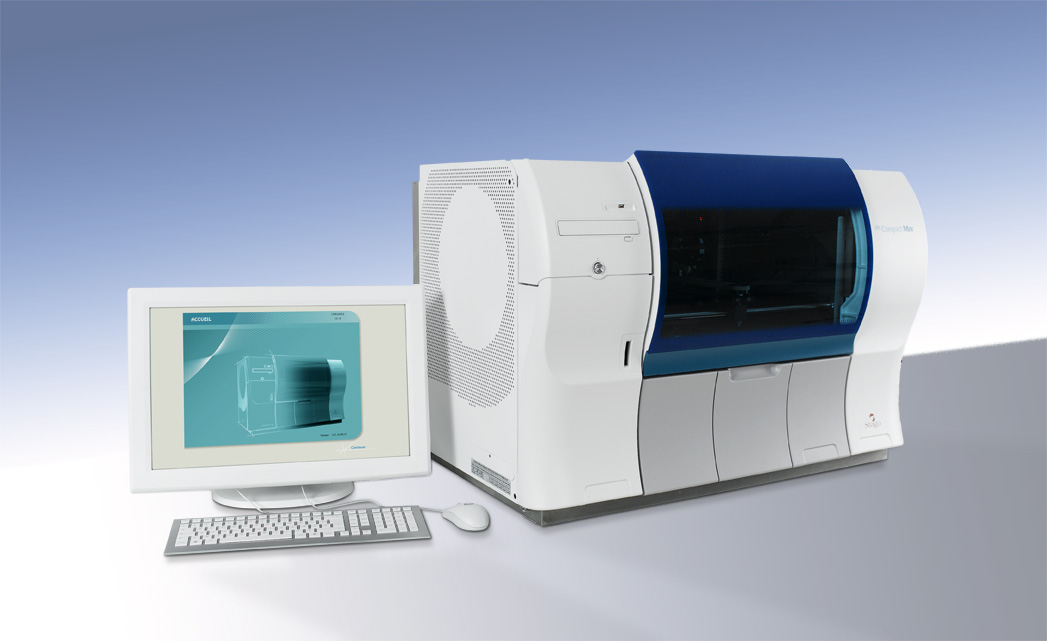
Fibrinogen, D-dimer
Analyzers
Coagulation Analyzers
Stago Compact MAX
Routine Tests (2)
LAC (Lupus Anticoagulant), Protein S, Anti-thrombin III
Analyzers
Coagulation Analyzers
Stago Compact MAX
Special Tests (3)
Multiplate Analyzer
ALCOR Scientific iSED
Analyzers
Other Machines (2)
Impedance Aggregometry
Analyzers
Other Machines
Multiplate Analyzer
Principle
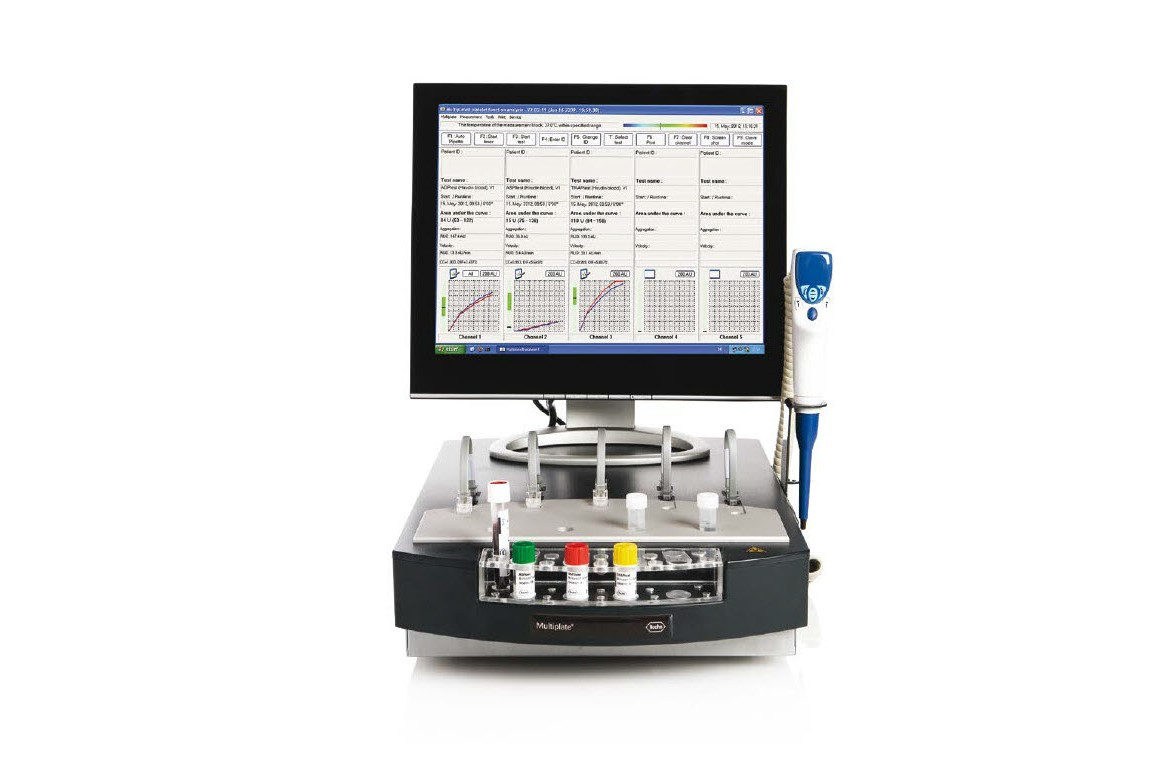
Clopidogrel Response Monitoring Test (ADP test)
Aspirin Response Monitoring Test (ASPItest)
Analyzers
Other Machines
Multiplate Analyzer
Tests done (2)
Photometric Rheology
Analyzers
Other Machines
ALCOR Scientific iSED
Principle
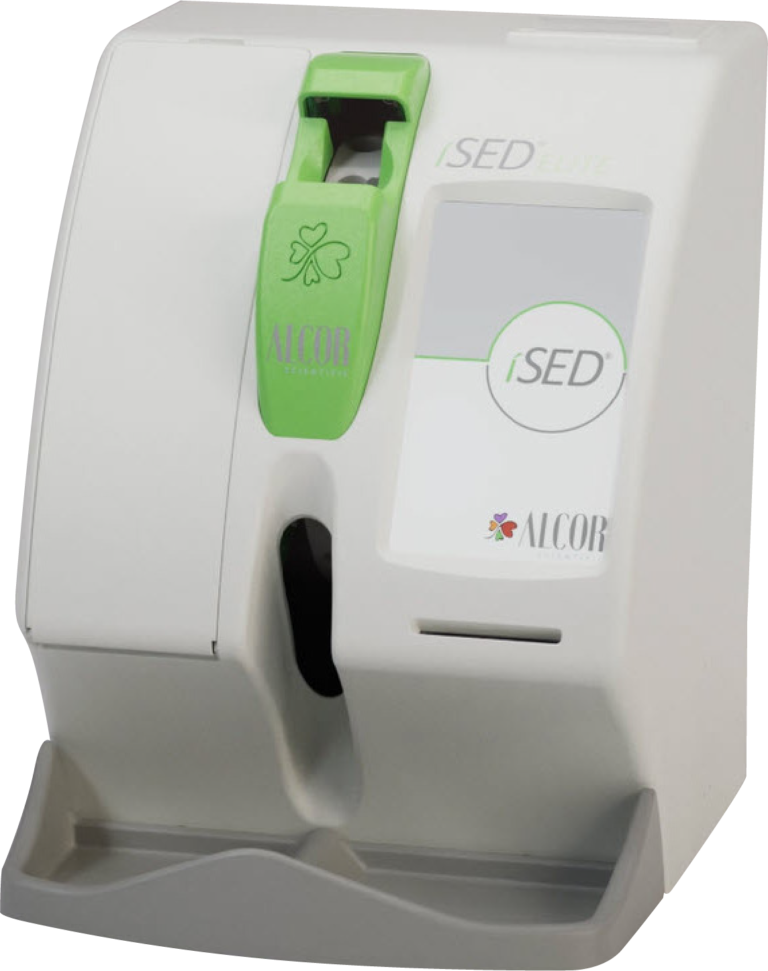
ESR
Analyzers
Other Machines
ALCOR Scientific iSED
Tests done
g/dL
11.6-15.5
13.0-17.0
CBC REFERENCE INTERVAL | |||
Unit | Female | Male | |
Hemoglobin | |||
%
36.0-47.0
40.0-52.0
CBC REFERENCE INTERVAL | |||
Unit | Female | Male | |
Hematocrit | |||
mil/mm3
4.20-5.40
4.70-6.10
CBC REFERENCE INTERVAL | |||
Unit | Female | Male | |
Red Blood Cell | |||
mm3
4,800-10,800
4,800-10,800
CBC REFERENCE INTERVAL | |||
Unit | Female | Male | |
White Blood Cell | |||
%
40-74
40-74
CBC REFERENCE INTERVAL | |||
Unit | Female | Male | |
Differential Count | |||
Neutrophil(s) | |||
%
19-48
19-48
CBC REFERENCE INTERVAL | |||
Unit | Female | Male | |
Differential Count | |||
Lymphocyte(s) | |||
%
0-7
0-7
CBC REFERENCE INTERVAL | |||
Unit | Female | Male | |
Differential Count | |||
Eosinophil(s) | |||
%
3-9
3-9
CBC REFERENCE INTERVAL | |||
Unit | Female | Male | |
Differential Count | |||
Monocyte(s) | |||
%
0-2
0-2
CBC REFERENCE INTERVAL | |||
Unit | Female | Male | |
Differential Count | |||
Basophil(s) | |||
/mm3
150,000-400,000
150,000-400,000
CBC REFERENCE INTERVAL | |||
Unit | Female | Male | |
Platelet Count | |||
fl
82-98
82-98
CBC REFERENCE INTERVAL | |||
Unit | Female | Male | |
MCV | |||
pg
28-33
28-33
CBC REFERENCE INTERVAL | |||
Unit | Female | Male | |
MCH | |||
%
32-38
32-38
CBC REFERENCE INTERVAL | |||
Unit | Female | Male | |
MCHC | |||
%
11.0-14.0
11.0-14.0
CBC REFERENCE INTERVAL | |||
Unit | Female | Male | |
RDW | |||
secs
11.9-14.2
Tests | Unit | Reference Values |
PT |
0.90-1.19
Tests | Unit | Reference Values |
INR |
secs
29.5-39.9
Tests | Unit | Reference Values |
PTT |
cellular morphology
Peripheral Blood Smear/Blood Film
Importance: A properly prepared blood smear/blood film is essential to accurate assessment of _ _
⅔ to ¾
Peripheral Blood Smear/Blood Film
Characteristics of a Well-made Blood Smear
About _-_ of the length of the slides is covered by the film
rounded
Peripheral Blood Smear/Blood Film
Characteristics of a Well-made Blood Smear
It is slightly _ at the feather edge (thin portion), not bullet shaped
Lateral
Peripheral Blood Smear/Blood Film
Characteristics of a Well-made Blood Smear
_ edges of the film should be visible
irregularities, holes, streaks
Peripheral Blood Smear/Blood Film
Characteristics of a Well-made Blood Smear
It is smooth without _, _, or _
rainbow appearance
Peripheral Blood Smear/Blood Film
Characteristics of a Well-made Blood Smear
The feathery edge of the slide should have a “_ _”
cells
morphology
Staining of Peripheral Blood Films
Purpose: To identify _ and recognize _ easily through the microscope
Wright or Wright-Giemsa stains
Staining of Peripheral Blood Films
are the most commonly used for peripheral blood and bone marrow films
eosin
methylene blue
polychrome stains
Staining of Peripheral Blood Films
Wright or Wright-Giemsa stains contain both _ and _ _ and are therefore termed _ _
dry
Staining of Peripheral Blood Films
Slides must be allowed to _ thoroughly before staining
methanol
Staining of Peripheral Blood Films
The cells are fixed to the glass slide by the _ in the stain
pH
buffer
6.4
Staining of Peripheral Blood Films
Staining reactions are _ dependent, and the actual staining of the cellular components when a _ (pH _) is added to the stain
Free methylene blue
RNA
blue
Staining of Peripheral Blood Films
_ _ _ is basic and stains acidic cellular components, such as _, _
Free eosin
hemoglobin or eosinophilic granules
red
Staining of Peripheral Blood Films
_ _ is acidic and stains basic components, such as _ or _ _, _
Neutrophils
Staining of Peripheral Blood Films
_ have cytoplasmic granules that have a neutral pH and accept some characteristics from both stains
pink to salmon
Staining of Peripheral Blood Films
An optimally stained film has the following characteristics:
The red blood cells (RBCs) should be _ to _
dark blue to purple
Staining of Peripheral Blood Films
An optimally stained film has the following characteristics:
Nuclei are _ _ to _
lavender to lilac
Staining of Peripheral Blood Films
An optimally stained film has the following characteristics:
Cytoplasmic granules of neutrophils are _ to _
dark blue to black
Staining of Peripheral Blood Films
An optimally stained film has the following characteristics:
Cytoplasmic granules of basophils are _ _ to _
red to orange
Staining of Peripheral Blood Films
An optimally stained film has the following characteristics:
Cytoplasmic granules of eosinophils are _ to _
colorless
clean
precipitated stain
Staining of Peripheral Blood Films
An optimally stained film has the following characteristics:
The area between the cells should be _, _, and free of _ _
cellular morphology
Staining of Peripheral Blood Films
A well-stained slide is necessary for accurate interpretation of _ _
2-3
Staining of Peripheral Blood Films
The best staining results are obtained from freshly made slides that have been prepared within _-_ hours of blood collection
Automated
Manual
Staining of Peripheral Blood Films
2 Staining Methods used in Hematology (2)
automated slide processor (SP10)
Staining of Peripheral Blood Films
2 Staining Methods used in Hematology
Machine used for automated method
Giemsa Stain
Staining of Peripheral Blood Films
2 Staining Methods used in Hematology
For platelets, RBC morphology, normal differential count, peripheral blood smear
Methanol
Eosin
Methylene Blue
Phosphate Buffer
Staining of Peripheral Blood Films
2 Staining Methods used in Hematology
Giemsa Stain Components (4)
Wright’s-Giemsa Stain
Staining of Peripheral Blood Films
2 Staining Methods used in Hematology
For abnormal differential count (immature cells)
Destroys RBC
Wright’s-Giemsa
Phosphate Buffer
Staining of Peripheral Blood Films
2 Staining Methods used in Hematology
Wright’s-Giemsa Stain Components (2)
Neutrophil
Types of WBC
engulf and have enzymes that destroy bacteria and other pathogens
Neutrophil
Types of WBC
They are the most abundant type of WBC in people’s bloodstream
Neutrophil
Types of WBC
They play an important role in fighting many types of bacterial infection
Lymphocyte
Types of WBC
Normally increased in pediatric and geriatric patients
infection
inflammatory condition
Types of WBC
Lymphocyte
High lymphocyte blood levels often indicate your body is dealing with an _ or other _ _
Lymphocytosis
Types of WBC
Lymphocyte
_ is very common, especially in people who have viral infections, chronic inflammation, certain types of cancer such as leukemia or lymphoma
Eosinophil
Types of WBC
Play a role in the immune system by helping fight microorganisms and parasitic infections
Eosinophil
Types of WBC
They are also activated during allergic reactions
Monocyte
Types of WBC
Travels through the blood to tissues in the body where it becomes a macrophage or a dendritic cell
Macrophages
Types of WBC
_ surround and kill microorganisms, ingest foreign material, remove dead cells, and boost immune responses
Monocyte
Types of WBC
Often linked to infectious diseases like infectious mononucleosis (IM), pulmonary tuberculosis (PTB), or an autoimmune disease like lupus
Basophil
Types of WBC
These cells are loaded with very dark blue to dark purple granules filled with various proteins and chemicals like histamine, serotonin, and heparin—responsible for the emergence of anaphylactic shock
Basophils
Types of WBC
Increased _ sometimes means your body is fighting a serious medical condition such as myeloproliferative disorder, severe allergies